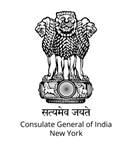 Statement by India on Panel Discussion on women’s rights and climate change: climate action, best practices and lessons learned in the 41st Session of the Human Rights Council ( 24 June – 12 July 2019), Permanent Mission of India, (Geneva, 28thJune 2019)
Statement by India on Panel Discussion on women’s rights and climate change: climate action, best practices and lessons learned in the 41st Session of the Human Rights Council ( 24 June – 12 July 2019), Permanent Mission of India, (Geneva, 28thJune 2019)
Mr. President,
1.India welcomes the convening of this panel discussion. We are of the view that women face higher risks and greater burdens from the impacts of climate change than men particularly in the situations of poverty. Hence, programmes that are designed without considering women’s specific needs and their due participation are often found to yield inequitable output.
2.Women’s participation and empowerment in climate change responses mutually reinforce each other. India’s climate change impact mitigation schemes takes into account of this perspective. One of such schemes is the Pradhan Mantri Ujjwala Yojna that provides clean cooking fuel to 50 million to poor women especially in rural areas. It was launched so that the health of women and girls is not compromised due to burning and collection of firewood. The National REDD+ strategy of 2018, (Reducing emissions from deforestation and forest degradation, conservation of forest carbon stocks, sustainable management of forests, and enhancement of forest carbon stocks’) makes representation of women in the forest governance as the central theme. Reservation of women in the Joint Forest Management Committees and Eco-development Committees and to the extent of 50% in Panchayati Raj Institutions (PRIs) is made compulsory to ensure meaningful participation of women in the local decision making mechanisms in all local matters including management and development of forests. The national as well as the international climate delegation of India is considerably represented by women delegates.
3.Under the Support to Training and Employment Programme, women and girls are given training particularly in non-agricultural sectors. The Mahila Shakti Kendras are working as interface to enable rural women availing their entitlements as well as training and capacity building facilities. The gender-responsive budgeting is being encouraged in India through Gender Budgeting Cells in the ministries and departments.
Thank you, Mr. President.
******












